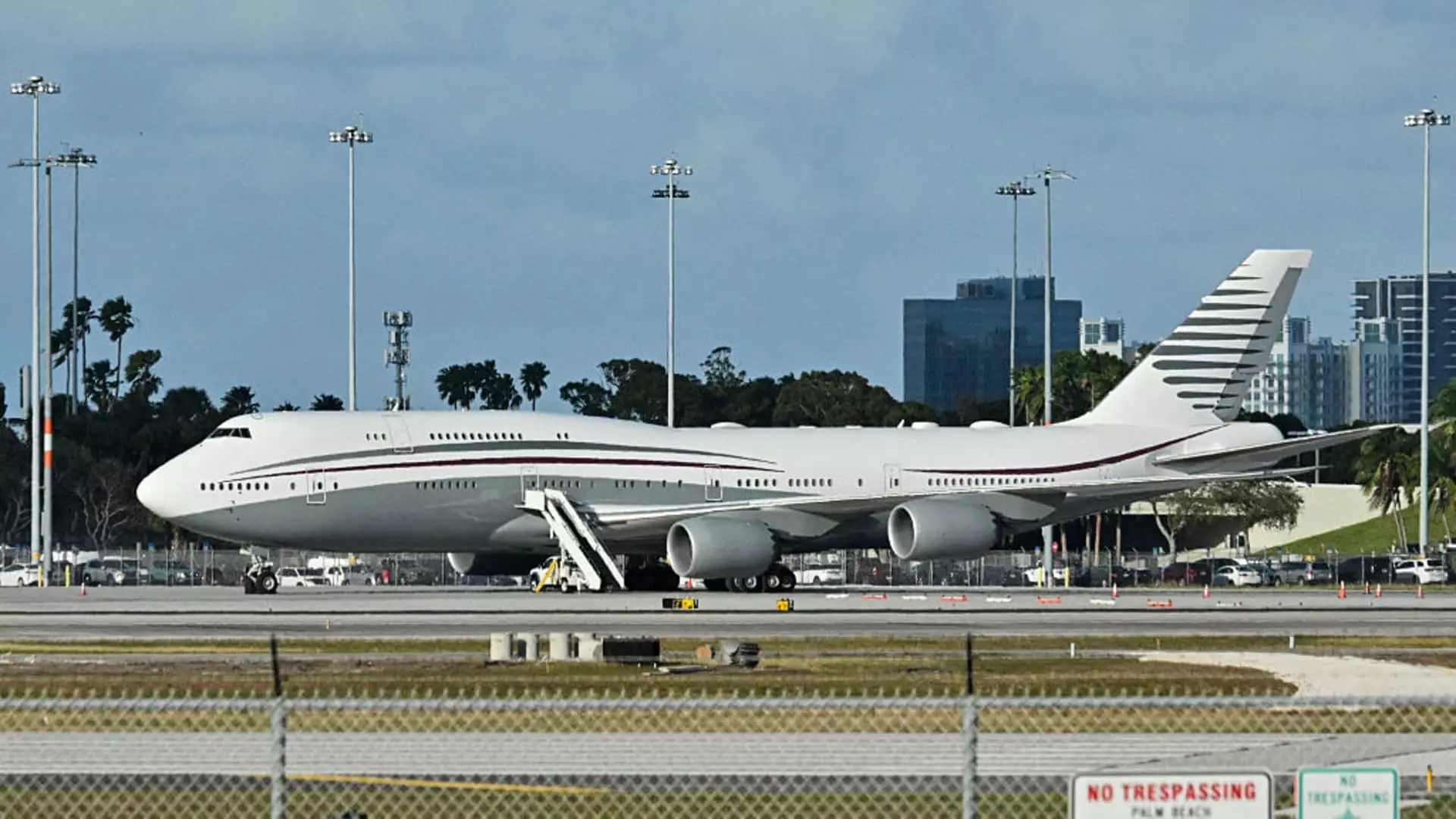The Trump administration’s recent decision to accept a luxurious Boeing 747 from the Qatari government represents a troubling intersection of politics, ethics, and national security. While Defense Secretary Pete Hegseth justified this acceptance by claiming adherence to federal regulations, the broader implications of such a diplomatic gift evoke deep concern. Just as a gift horse might harbor hidden dangers, this seemingly innocuous gesture presents a host of ethical quandaries that cannot be ignored.
The Pentagon’s announcement included assurances that the jet would meet “proper security measures and functional-mission requirements,” but such statements feel disingenuous in light of the skepticism being directed toward the deal. The reality is that accepting a gift of this magnitude from a foreign nation poses profound questions about loyalty, influence, and the integrity of the presidential office. The mere act of receiving a plane valued at approximately $400 million from Qatar—which has been scrutinized for its funding of terrorism and dubious human rights record—begs the question: What are the consequences of such a gesture?
A Questionable Motivation
President Trump’s assertion that Qatar’s generous offering serves to “help us out” is equally perplexing. This rhetoric appears to downplay the seriousness of accepting a large gift under the guise of alliance-building. In international relations, a gift of this scale rarely comes without expectation. The implications are especially jarring when viewed through the lens of power dynamics; a gesture framed as benign could simultaneously erode trust in the U.S. diplomatic stance.
Senate Minority Leader Chuck Schumer’s description of this acceptance as a potential bribery attempt is not merely hyperbole—it highlights the precarious position the U.S. leadership currently occupies. It positions Trump’s administration in a defensive posture reminiscent of a time when foreign powers had undue influence over American policies. To dismiss this as partisan posturing would be a stark miscalculation; even within the Republican party, unease exists. Senator Susan Collins eloquently expressed concerns about ethical and constitutional implications, urging a reassessment of the motivations behind accepting such a high-profile gift.
The Threat of National Security Breaches
Worryingly, the national security risks associated with this deal extend beyond mere optics. Experts have raised red flags about the security implications of converting an existing foreign jet into Air Force One. The expense associated with adapting this plane could surpass $1 billion and take years, deepening concerns over whether this choice is simply a means for administration members to save face while a more secure and reliable alternative from Boeing remains years behind schedule.
Given the unprecedented revelations surrounding former National Security Advisor John Bolton’s failed dealings, one cannot help but wonder whether this jet may unwittingly become a conduit for unintended consequences. Accepting an aircraft from a nation that has faced accusations of supporting extremist groups is a slippery slope. It undermines U.S. authority and raises the specter of espionage. If the administration is willing to overlook these risks to secure a transient symbol of prestige for President Trump, what other ethical boundaries are being blurred?
Institutional Integrity in Jeopardy
This entire scenario reflects a much larger, troubling trend: the institutional integrity of the presidency is at stake. The fallout from this transaction could extend well beyond Trump’s tenure. Schumer’s call for transparency underscores the need for accountability and oversight in government dealings that involve foreign gifts, an area often overlooked in political discourse.
When such profound ethical lines are redefined, the ramifications reach deep into the very fabric of American democracy. By accepting this jet, the administration inadvertently normalizes a mindset that trivializes ethical standards and prioritizes convenience over constitutional fidelity. And while Trump and his allies argue that accepting a “gift” is simply smart policy, the underlying repercussions risk inviting future foreign manipulation of the highest office in the land.
In a political landscape defined by increasing cynicism and skepticism, the actions of the Trump administration in accepting this Qatari gift highlight an alarming disregard for both national standards and international trust. The gravity of this situation demands that we remain vigilant, examining not just the actions but also the motivations driving such monumental decisions.


Leave a Reply